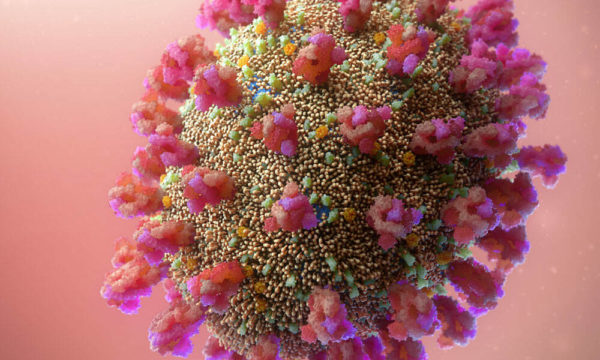Promising Breakthroughs in Cancer Treatment Emerging Therapies
In the relentless quest to conquer cancer, the world of medicine is witnessing a remarkable transformation. Cancer Treatment is

In the relentless quest to conquer cancer, the world of medicine is witnessing a remarkable transformation. Cancer Treatment is no longer confined to conventional therapies alone. A new dawn is breaking, and it’s heralding a wave of Emerging Therapies that promise innovative and effective ways to combat this formidable adversary.
The Ever-Evolving Battle Against Cancer
Cancer has long been one of humanity’s most formidable challenges, a relentless adversary that has claimed countless lives. However, the battle against this insidious disease has seen tremendous progress in recent years. The introduction of innovative therapies is shifting the paradigm of Cancer Treatment.
A Glance Back in Time
The history of cancer treatment is marked by milestones like surgery, chemotherapy, and radiation therapy. While these traditional methods have saved lives and remain vital, they often come with significant side effects, making the quest for more targeted and effective therapies all the more urgent.
Promising Breakthroughs: The quest for Promising Breakthroughs is not just a scientific endeavor; it’s a battle to enhance the quality of life for cancer patients and increase their chances of survival.
Promising Breakthroughs in Cancer Treatment
Let’s explore the landscape of Emerging Therapies that are redefining Cancer Treatment.
1. Immunotherapy: Unleashing the Power Within
Immunotherapy is a groundbreaking approach that harnesses the body’s own immune system to combat cancer. It involves therapies like checkpoint inhibitors and CAR-T cell therapy, which reprogram immune cells to recognize and attack cancer cells.
Cancer Treatment: Immunotherapy is not just a component of Cancer Treatment; it’s a revolution that empowers the body’s natural defenses to fight the disease.
2. Targeted Therapies: Precision at Its Best
Targeted therapies are like precision-guided missiles that specifically target cancer cells. They work by interfering with the specific molecules or pathways involved in the growth and spread of cancer, minimizing damage to healthy cells.
Promising Breakthroughs: Targeted therapies are not just a technological advancement; they are the embodiment of Promising Breakthroughs that aim to maximize effectiveness and minimize side effects.
3. Gene Therapy: Rewriting the Blueprint
Gene therapy holds the promise of rewriting the genetic code responsible for cancer. Innovative techniques like CRISPR-Cas9 enable scientists to modify or replace faulty genes, potentially curing genetic disorders and inhibiting the growth of cancer cells.
Cancer Treatment: Gene therapy is not just a novel approach to Cancer Treatment; it’s a glimpse into the future of precision medicine.
4. Oncolytic Viruses: Nature’s Trojan Horses
Oncolytic viruses are like Trojan horses that infiltrate cancer cells. These modified viruses selectively replicate within cancer cells, causing them to burst and die. It’s a unique way to target and destroy cancer from within.
Promising Breakthroughs: Oncolytic viruses are not just therapeutic agents; they are a testament to the ingenuity of Promising Breakthroughs in the world of cancer research.
5. Personalized Medicine: Tailoring Treatment
The era of one-size-fits-all cancer treatment is waning. Personalized medicine uses genetic and molecular profiling to tailor treatment plans to the unique characteristics of an individual’s cancer. This approach maximizes effectiveness and minimizes side effects.
Cancer Treatment: Personalized medicine is not just a tailored approach to Cancer Treatment; it’s a realization that each patient’s journey is unique.
Emerging Therapies in Action
These Emerging Therapies are not merely theoretical concepts. They are making tangible impacts on the lives of cancer patients. Let’s take a closer look at some real-life examples of their application.
Case Study 1: Immunotherapy Triumph
Meet Sarah, a 42-year-old woman diagnosed with stage IV melanoma. Conventional treatments offered little hope, and her prognosis was grim. However, a new immunotherapy drug, which unleashed her immune system to target cancer cells, provided a lifeline.
Within months of treatment, Sarah’s tumors shrank significantly, and her prognosis improved dramatically. The side effects, while present, were manageable, and she could resume a relatively normal life.
Promising Breakthroughs: Sarah’s story is not just a case study; it’s a testament to the potential of Promising Breakthroughs in immunotherapy to transform the lives of cancer patients.
Case Study 2: Targeted Therapy Precision
John, a 55-year-old man, was diagnosed with lung cancer. Traditional chemotherapy caused severe side effects, making his treatment journey unbearable. His medical team decided to explore targeted therapies that aimed at specific genetic mutations present in his tumor.
John’s response to targeted therapy was remarkable. His cancer showed a significant reduction, and the side effects were considerably milder. This approach allowed him to maintain a good quality of life during treatment.
Cancer Treatment: John’s case is not just a medical case; it’s a testament to the precision and effectiveness of Cancer Treatment through targeted therapies.
Case Study 3: Gene Therapy Hope
Young Emma, just six years old, was diagnosed with a rare genetic disorder that made her prone to developing leukemia. Traditional treatments offered limited success. Her medical team decided to explore gene therapy to correct the underlying genetic mutation.
After receiving gene therapy, Emma’s condition improved dramatically. She went into remission and had a chance at a healthy childhood. Gene therapy not only saved her life but also offered hope to others with similar genetic conditions.
Promising Breakthroughs: Emma’s journey is not just a case study; it’s a beacon of hope that Promising Breakthroughs in gene therapy can bring to families facing genetic disorders and cancer.
Challenges on the Horizon
While Emerging Therapies are offering new hope, they are not without their challenges.
1. Cost and Accessibility
Many of these therapies are expensive and may not be accessible to all patients. Addressing the cost and ensuring equitable access to these treatments is a significant challenge.
Promising Breakthroughs: The challenge of cost and accessibility is not just a financial concern; it’s an ethical question related to the dissemination of Promising Breakthroughs.
2. Side Effects and Long-Term Effects
These therapies, while promising, can have side effects, some of which are not fully understood. Additionally, their long-term effects on patients are still being studied.
Cancer Treatment: The challenge of side effects and long-term effects is not just a medical concern; it’s a reminder of the ongoing evolution of Cancer Treatment.
3. Ethical and Regulatory Dilemmas
Emerging therapies like gene editing and gene therapy pose ethical and regulatory dilemmas. The potential to alter the human genome raises questions about safety, consent, and the boundaries of scientific intervention.
Promising Breakthroughs: The challenge of ethical and regulatory dilemmas is not just a legal matter; it’s a reflection of the profound impact of Promising Breakthroughs on society.
The Future of Cancer Treatment
As we navigate the landscape of Promising Breakthroughs in cancer treatment,
it’s essential to look to the future. The horizon is rich with possibilities, and here are some glimpses of what lies ahead:
1. Combination Therapies
The future holds the promise of combining various Emerging Therapies to maximize their effectiveness. This synergy could provide even more robust treatment options for cancer patients.
Cancer Treatment: Combination therapies are not just a potential advancement; they are a testament to the evolving landscape of Cancer Treatment.
2. Biomarker-Based Treatment
Advancements in biomarker research could lead to highly personalized treatment approaches. The ability to identify specific biomarkers that dictate treatment responses will revolutionize cancer care.
Promising Breakthroughs: Biomarker-based treatment is not just a scientific concept; it’s a glimpse into the future of Promising Breakthroughs that cater to individual patient needs.
3. AI and Big Data Integration
Artificial intelligence and big data will play an increasingly significant role in cancer treatment. These technologies will assist in the analysis of patient data, drug development, and treatment optimization.
Cancer Treatment: AI and big data integration are not just technological trends; they are the future of Cancer Treatment that leverages data-driven precision.
4. Enhanced Supportive Care
Alongside therapeutic breakthroughs, the future will also see advancements in supportive care. Managing side effects, enhancing patient quality of life, and addressing the emotional aspects of cancer treatment will be central.
Promising Breakthroughs: Enhanced supportive care is not just an addition to treatment; it’s an integral part of Promising Breakthroughs that aim to improve the holistic well-being of cancer patients.
Conclusion: A Promising Path Forward
In the labyrinthine landscape of cancer, where hope often mingles with despair, Promising Breakthroughs in cancer treatment offer a path forward that is bright with potential. These Emerging Therapies are not just medical advancements; they are beacons of hope for patients and their families.
As we navigate the challenges of cost, side effects, and ethics, we must remember that the quest for Cancer Treatment is not just a scientific endeavor; it’s a testament to human resilience, innovation, and our unwavering commitment to defeating one of the most formidable adversaries of our time.
The horizon of cancer treatment is rich with possibilities, and it is a journey worth undertaking. In every promising breakthrough, we find not just science but the promise of brighter tomorrows for those touched by cancer.







